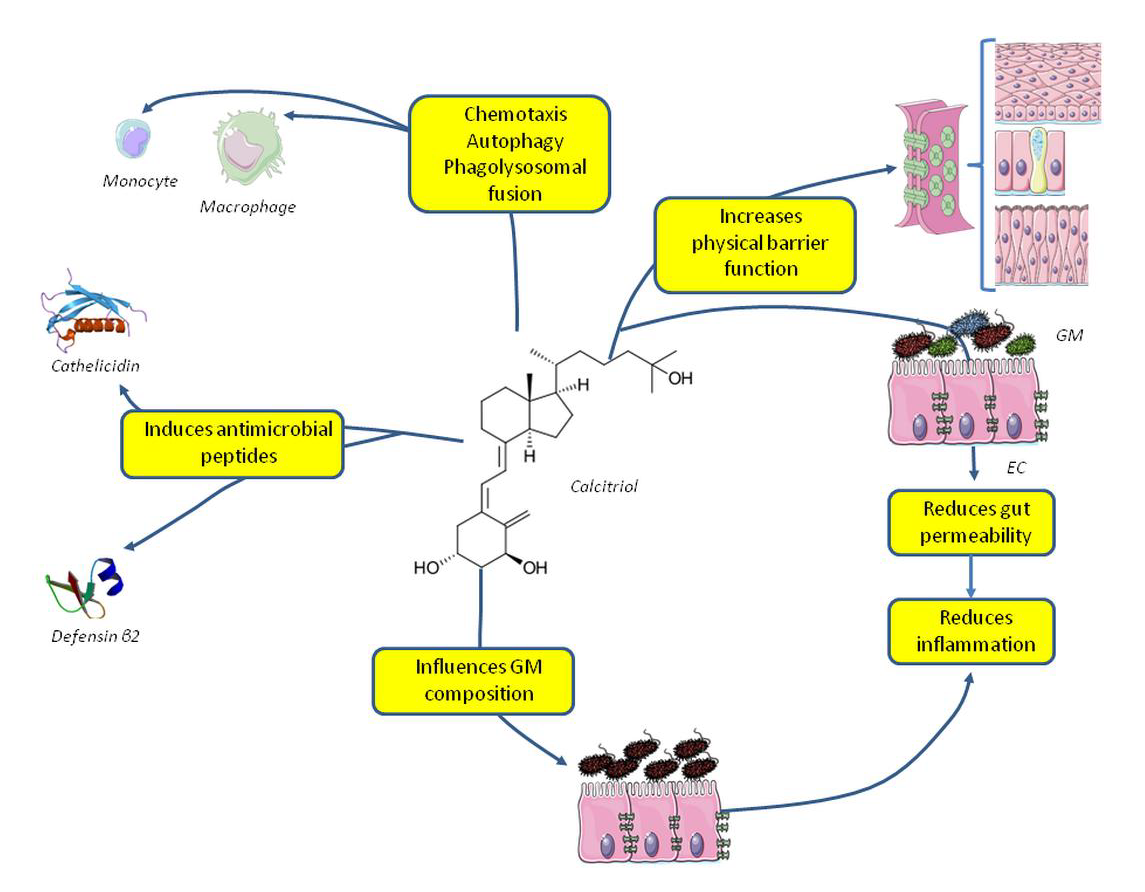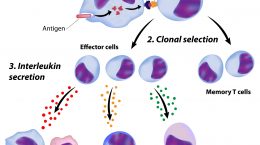Published on February 11, 2020
 Multiple studies have shown a link between vitamin D deficiency, increased inflammation, and dysregulation of the immune system, demonstrating the necessity of vitamin D in maintaining a healthy and effective immune response. Vitamin D has been shown to enhance the innate and adaptive immune responses while controlling a potentially harmful inflammatory response. Evidence shows that vitamin D is able to control immune function at several different levels; in fact
Multiple studies have shown a link between vitamin D deficiency, increased inflammation, and dysregulation of the immune system, demonstrating the necessity of vitamin D in maintaining a healthy and effective immune response. Vitamin D has been shown to enhance the innate and adaptive immune responses while controlling a potentially harmful inflammatory response. Evidence shows that vitamin D is able to control immune function at several different levels; in fact
- most immune cells, including B cells, T cells, monocytes, macrophages and dendritic cells, have a vitamin D receptor
- immune cells contain the enzymes necessary to convert vitamin D into its active form, and utilize vitamin D to perform certain functions
- inflammation triggers the monocytes and macrophages (types of white blood cells) to increase production of vitamin D activating enzymes
- vitamin D has direct antiviral effects, including against enveloped viruses (such as the coronavirus)
With the above known physiology and functionality of vitamin D, it makes sense that its conversion and utilization by the local cells and tissues is essential to how the immune cells respond to infection.
Our First Line of Defense Relies on Vitamin D
Let’s start with a list of actions that vitamin D is involved in with the innate immune system, which is the body’s first and immediate line of defense against a pathogen.
ACTION: Vitamin D allows immune cells and epithelial cells (such as those in the lungs and gastrointestinal tract) to increase their production of antimicrobial peptides, regulate certain immune cells, and reinforce the physical barrier for better response against infections; this is especially true for the airway epithelial cells in response to a viral infection
ACTION: Vitamin D is needed by certain white blood cells to help them recognize, bind to, and destroy pathogens in the body (through processes called chemotaxis, autophagy and phagocytosis)
ACTION: Vitamin D influences the gut microbiota and helps it maintain its immune modulating effects
The diagram below helps to illustrate some of these effects that vitamin D (calcitriol, the molecule in the middle, is the active form of vitamin D, 1,25-dihyroxycholecalciferol), has on the innate immune system.
Sassi et al., Nutrients, 2018.
With the information provided above, there should be no doubt that vitamin D is essential to a healthy immune response, and to help prevent a pathogen from invading and resulting in illness. In an upcoming post, we will cover even more ways that vitamin D provides support to a stronger immune system, through specific actions in the adaptive immune system and T cells.
Is your immune system strong enough to help you stay healthy?
Make sure you know your vitamin D level, and take steps to keep it within a target of 40-60 ng/ml or 100-150 nmol/L! Through GrassrootsHealth Nutrient Research Institute, you can also test your essential elements magnesium, copper, zinc and selenium, toxins such as lead, mercury and cadmium, as well as your omega-3 levels, inflammation levels and thyroid stimulating hormone (TSH) level. Find out your levels today! Log on to the test selection page (click the link below) to get your tests and see for yourself if your levels can be improved.
Make sure you track your results before and after, about every 6 months!
Click Here to Access the Test Page
How can I track my nutrient intake and levels over time?
To help you track your supplement use and nutrient levels, GrassrootsHealth has created the Personal Health Nutrient Decision System called.

For each specific supplement, you can track what days you take it, how much, and many other details. This will help you know your true supplemental intake and what patterns of use work for you to reach and maintain optimum nutrient levels. Check it out today!








